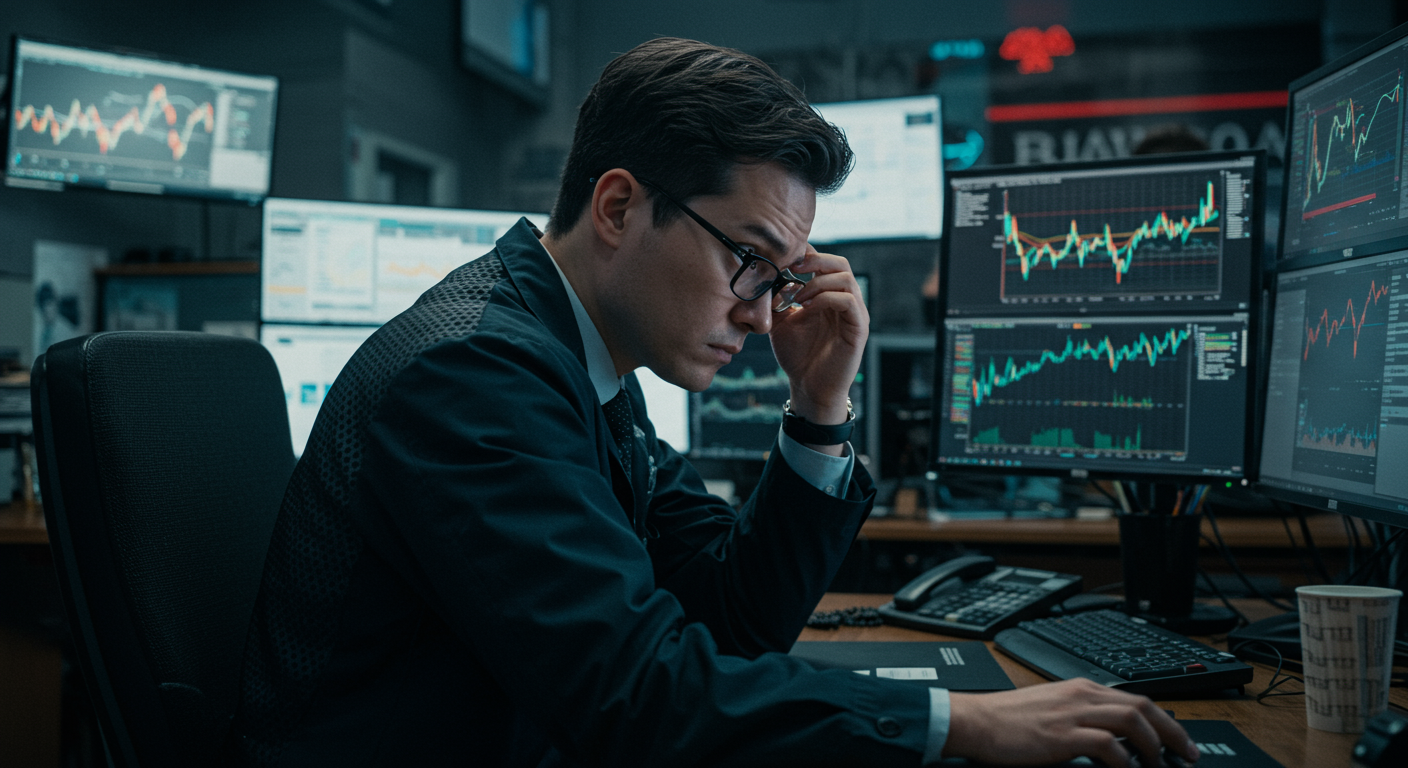That Reddit Post That Got Me Thinking
So, I was browsing r/Bitcoin the other day and saw a post that really stuck with me. It was from a 19-year-old who got into Bitcoin relatively recently. He's grateful for what he has, but bummed he didn't discover Bitcoin sooner, especially before the 2022 crash. He wishes he could have a whole coin.
It's a feeling I think a lot of us can relate to, regardless of age. There's always that sense of "what if" when you look back at missed opportunities in the crypto market. But this post got me thinking about more than just regret. It highlighted some important lessons about investing in Bitcoin, especially for those of us trading outside the US, and how to manage risk in this volatile market.
For younger investors, the barrier to entry feels much lower, but they also have less capital. For older investors, they might have more capital but are more hesitant to jump in. There's no perfect age to start, but there are definitely things we can all learn from each other. Timing the market is impossible. Instead, focus on understanding the technology, managing your risk, and building a long-term strategy.

Decoding the Emotions Behind the Post
Let's break down the emotional layers in that Reddit post. First, there's the obvious FOMO (fear of missing out). He sees the early adopters who bought Bitcoin for next to nothing and probably feels like he missed the boat. This is a common feeling in crypto, especially when you see prices skyrocketing. It's easy to get caught up in the hype and want to jump in, even if you don't fully understand what you're investing in.
Then there's the frustration of being young and not having the capital to invest as much as he'd like. Many people start investing with smaller amounts, and it can be discouraging when you see others making bigger gains with larger investments. It's important to remember that everyone starts somewhere, and consistent, smaller investments over time can add up.
Beneath the regret, there's also a sense of optimism. He recognizes that he's still early in the game, especially for his age. This is a huge advantage. He has time to learn, adapt, and grow his investment over the long term. The fact that he's already researching and investing at 19 shows a level of maturity and foresight that many people don't develop until much later in life.
So, What Does This Mean for YOUR Bitcoin Strategy?
Okay, so you read about a 19-year-old wishing he bought Bitcoin earlier. How does that affect your actual crypto strategy? First, it's a good reminder to zoom out and focus on the long term. Don't get caught up in the daily price fluctuations or the latest hype. Bitcoin is still a relatively new asset, and its potential is far from fully realized. Think about it - if you're reading this, you're still early!
Second, it highlights the importance of dollar-cost averaging (DCA). Instead of trying to time the market (which is impossible), DCA involves investing a fixed amount of money at regular intervals, regardless of the price. This helps to smooth out the volatility and reduce the risk of buying at the top.
Even if you can only afford to invest a small amount each week or month, it can make a big difference over time.
Third, it underscores the need for diversification. While Bitcoin is a great investment, it shouldn't be the only one in your portfolio. Diversifying into other cryptocurrencies, stocks, bonds, or other assets can help to reduce your overall risk.
The Stuff Nobody Likes to Talk About: Risk Management
Let's be real. Crypto is risky. The price of Bitcoin can swing wildly, and there's always the potential for hacks, scams, and regulatory changes. So, how do you protect yourself? Risk management.
First, never invest more than you can afford to lose. This is the golden rule of investing, and it's especially important in crypto. Only allocate a portion of your portfolio to crypto that you're comfortable losing entirely.
Second, use a hardware wallet to store your Bitcoin. This is a physical device that stores your private keys offline, making it much more difficult for hackers to access your funds. Think of it as a digital vault for your crypto. There are several reputable hardware wallet brands on the market, so do your research and choose one that fits your needs.
Third, be wary of scams and phishing attacks. Always double-check the URL of any website you visit, and never click on links from unknown sources. Scammers are getting increasingly sophisticated, so it's important to be vigilant. Enable two-factor authentication (2FA) on all your crypto accounts. This adds an extra layer of security and makes it much harder for hackers to gain access.
Use a strong, unique password for each account. Avoid using the same password across multiple platforms.
If You're Trading Bitcoin From Outside the US
Here's where things get interesting for those of us trading Bitcoin outside the US. Regulations vary widely from country to country. Some countries have embraced Bitcoin, while others are still figuring out how to regulate it. It's crucial to understand the laws and regulations in your jurisdiction before you start trading. Check your local crypto regulations.
Tax implications can also vary significantly depending on where you live. Some countries tax Bitcoin as property, while others treat it as currency. Consult with a tax professional to understand your obligations and ensure you're compliant with local laws.
Access to exchanges and platforms can also differ. Some exchanges may not be available in your country, or they may have different features or limitations. Research and compare different exchanges to find one that meets your needs and is compliant with local regulations.
Exchange fees can also vary depending on the platform and your trading volume. Be aware of these fees and factor them into your trading strategy. Different countries have different levels of investor protection. Understand the risks involved and take steps to protect yourself, such as using reputable exchanges and diversifying your portfolio.

Actually Implementing These Ideas
Okay, enough theory. How do you actually put these ideas into practice? Let's say you're convinced about the long-term potential of Bitcoin and want to start investing. First, set a realistic budget. How much can you afford to invest each week or month without putting your financial stability at risk?
Start small and gradually increase your investment as you become more comfortable. Next, choose a reputable exchange. Changelly is a great option for beginners due to its user-friendly interface. For more experienced traders, KuCoin offers a wider range of features and trading options. Once you've chosen an exchange, create an account and complete the verification process. This usually involves providing some personal information and uploading a copy of your ID.
Now, it's time to start buying Bitcoin. Use dollar-cost averaging (DCA) to smooth out the volatility. Set up a recurring purchase plan to automatically buy a fixed amount of Bitcoin at regular intervals.
Conclusion
A 19-year-old Bitcoin investor sharing his regrets and lessons can help us all navigate the complexities of trading this volatile asset. By focusing on long-term strategies, diversification, and robust risk management, we can minimize potential pitfalls and maximize our chances for success in the ever-evolving crypto landscape.